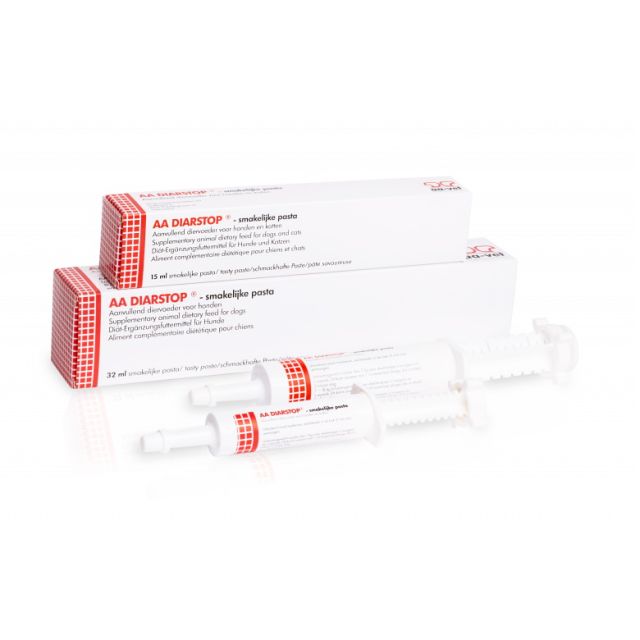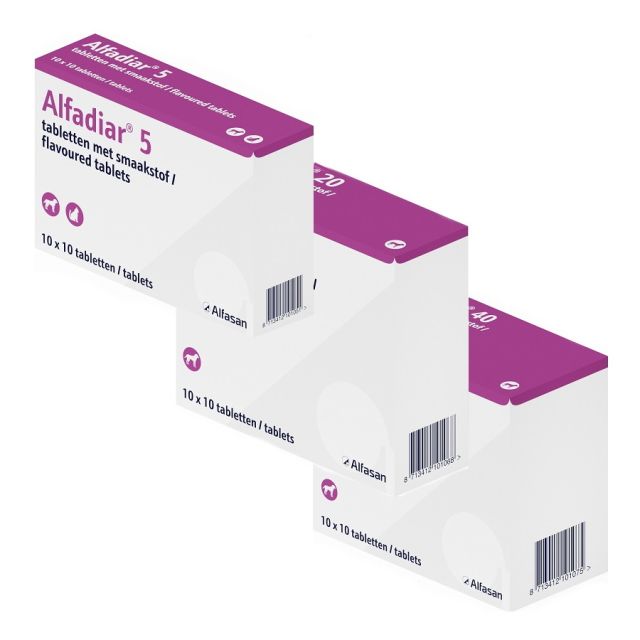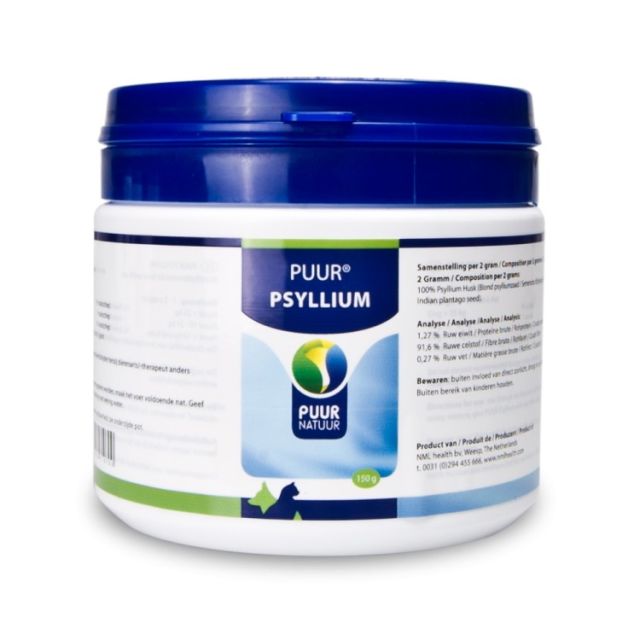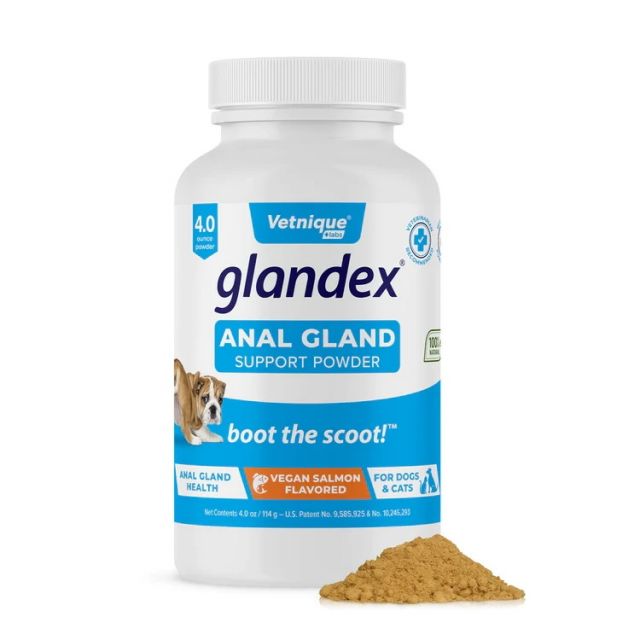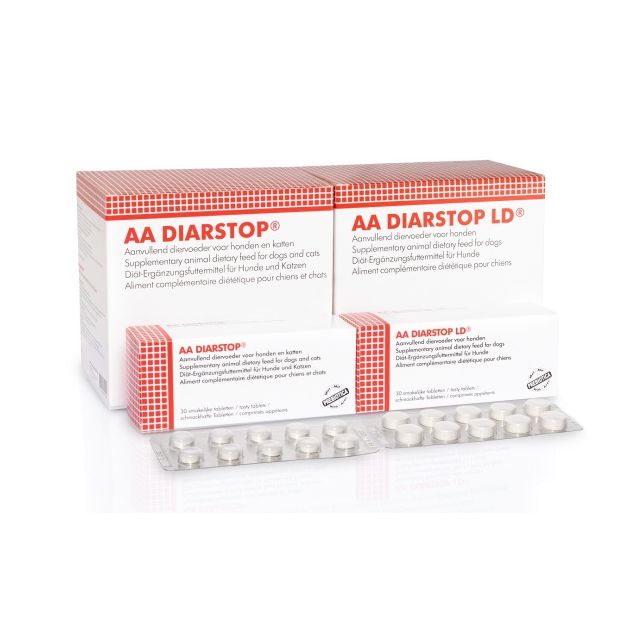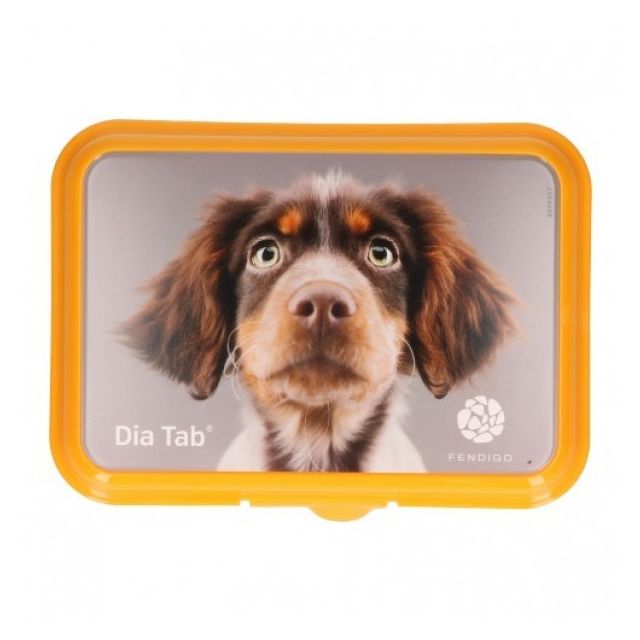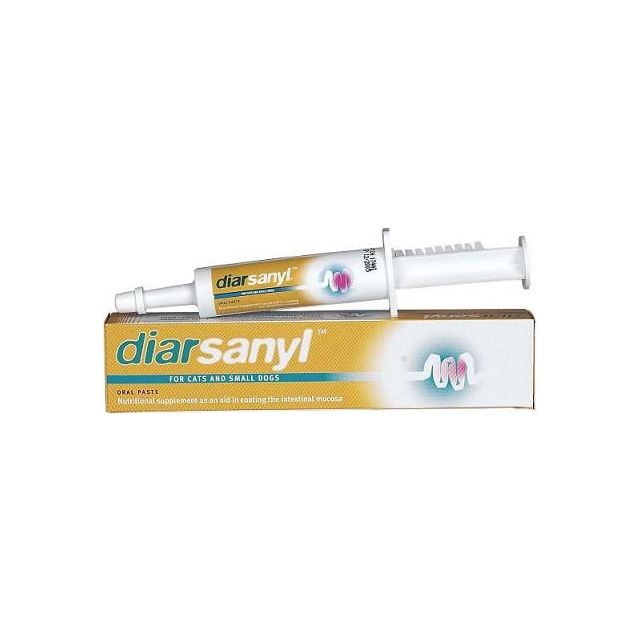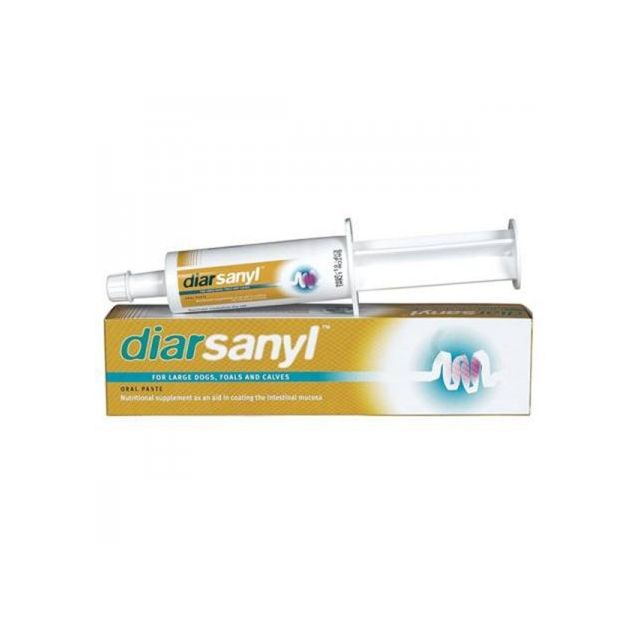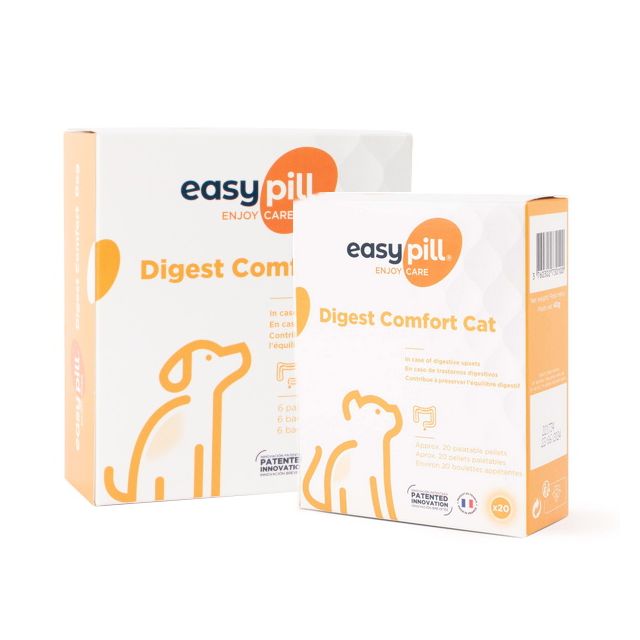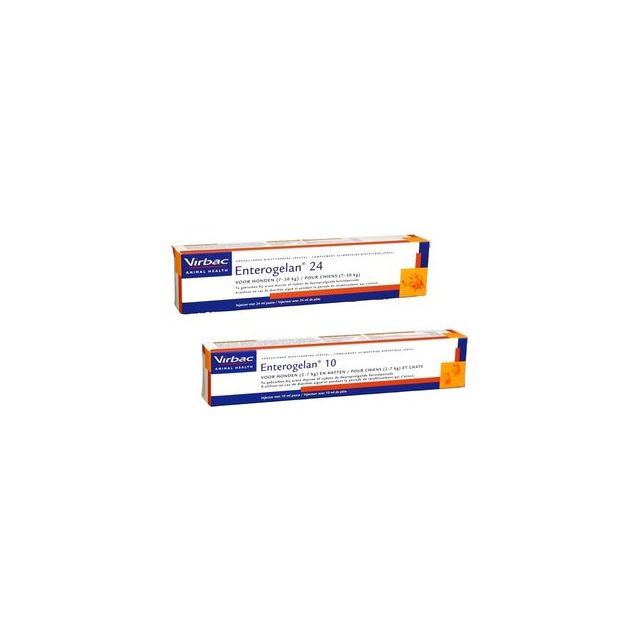My cat has diarrhea
Changing the cat's litter box is probably not your favorite task. If your cat has diarrhea, it becomes an even tougher job! The stool is thinner and may smell even worse than usual. Also, your cat might have had an accident outside the box. Annoying for you, but even more so for your furry friend. Fortunately, diarrhea usually goes away on its own in a few days and you can do quite a lot yourself to help speed up your cat's recovery and stop the diarrhea. Pharmacy4pets has a wide range of products that support your cat with diarrhea. Read on to find out what can cause diarrhea, what you can do yourself, and when it is advisable to go to the vet with your beloved pet.
Causes of diarrhea in cats
Diarrhea can have many different causes and it is not always easy to find out why your cat's stool is abnormal. Some common causes of diarrhea in cats are:
- Food poisoning: thankfully, cats are a bit wiser than dogs and are less likely to eat spoiled food or something from the street. Pre-packaged raw cat foods or raw meat, fish, or eggs usually contain bacteria. Often this goes well, but if the food is stored improperly, your cat is sensitive to it, or if it contains too many bacteria, your cat can get diarrhea from eating raw food.
- Change of diet: many cats have a gastrointestinal system that is sensitive to changes. Simply switching to a new food or introducing a new snack can lead to a few days of thinner stools.
- Food intolerance or hypersensitivity: if your cat has a food allergy or intolerance, its immune system overreacts to one or more components of the food. If your cat has a food hypersensitivity, hypoallergenic food such as Sanimed Skin Sensitive Cat is the solution.
- Viruses and parasites: especially if your cat comes into contact with other cats and in kittens, diarrhea is often caused by viruses or parasites. A coronavirus usually causes mild, transient diarrhea. Fortunately, your cat can be vaccinated against the potentially deadly feline disease (parvovirus).
Parasites that are common in cats are different types of worms, Giardia, and Tritrichomonas, a parasite that usually causes mild but very long-lasting diarrhea, especially in kittens. Since all parasites require different treatments, it is important to determine through stool testing whether and which parasite is causing the problem in your cat.
- Antibiotics or other medication: many bacteria live in your cat's gut (also called the gut flora or microbiome). Antibiotics kill not only bad, but also good bacteria. If there is a shift in the composition of the microbiome, this can easily lead to diarrhea.
- IBD (Inflammatory Bowel Disease): this nasty inflammation of the intestinal wall causes chronic diarrhea.
- Intestinal tumors.
- Causes outside the gastrointestinal tract: for example, a hyperactive thyroid, inflammation of the pancreas, and poorly functioning kidneys can cause diarrhea.
Treating Diarrhea in Cats
Given the many possible causes of diarrhea, there are also many options for treatment. You can also take measures to support your cat with diarrhea. Treatment by a veterinarian is necessary for prolonged diarrhea or if your cat is ill. Here are some important pillars in the treatment of diarrhea in cats:
Adjusting the diet
If your cat is not sick and still eating well, the advice for acute diarrhea is to feed small portions more frequently throughout the day. You can continue with your cat's regular diet or choose easily digestible food such as Sanimed Intestinal Cat. If your cat normally consumes raw meat, it is better to temporarily cook it to kill the bacteria often present in this type of food. If your cat is not eating or drinking enough or if the diarrhea is very watery, it may be beneficial to support your cat with additional energy and salts, such as Enterogelan paste or ORS powder.
In cases of prolonged or more severe diarrhea, the veterinarian may prescribe a specific diet or dietary supplements.
Never fast your cat when it has diarrhea! The sick intestine actually needs extra nutrients to recover. Only in cases of persistent vomiting, temporary fasting may be advised (but in any case, you should consult your veterinarian!)
Anti-diarrheal agents
Genuine anti-diarrheal agents, which are sometimes prescribed for humans, are usually contraindicated for cats. Diarrhea is often a useful process to eliminate bacteria, viruses, and toxins from the body as quickly as possible. Therefore, stopping diarrhea is generally undesirable in cases of very acute diarrhea. However, it is possible to help thicken the stool and support the intestines. Some examples of nutritional supplements for acute gastrointestinal absorption disorders include: Iso-Gel, Diarstop paste, and Alfadiar.
Probiotics for cats
Diarrhea often involves a disruption of the microbiome. A probiotic consists of beneficial bacteria and specific nutrients for the bacteria in the intestine, allowing for faster restoration of the balance. Giving a probiotic may also be beneficial after an antibiotic treatment. At Pharmacy4pets, you can find various probiotics for cats such as Protexin Pro-Kolin Advanced, Purina Pro Plan FortiFlora for cats, or PUUR Probiotic.
Specific treatments for diarrhea
If there is a clear cause for the diarrhea, a targeted treatment can be initiated. Examples of specific treatments for diarrhea include worm treatments, Panacur (a medication against Giardia), anti-inflammatory drugs, or antibiotics. Supportive measures such as intravenous fluids, appetite-stimulating medication, vitamin B12, or antiemetic drugs may be indicated if your cat is very ill.
Preventing diarrhea in your cat
You can reduce the chance of diarrhea in your cat by taking some precautions:
- Be cautious with raw food.
- Feed a good complete cat food.
- Introduce new food gradually over the course of a week.
- Deworm your cat.
- Support a healthy intestinal flora.
When is the best time to see a veterinarian for diarrhea?
If there is blood in the stool or if your cat has had diarrhea for more than three to five days, it is advisable to take your cat to the veterinarian. It is also recommended to visit a veterinarian if your cat is lethargic, eating or drinking significantly less than usual, highly irritable, withdrawing (often a sign of abdominal pain), losing weight, or vomiting. Young kittens with diarrhea and older cats weaken significantly faster, so do not wait too long to seek veterinary care.
Pharmacy4pets offers a wide range of products to support your cat's gastrointestinal system when it has diarrhea. If you have any questions about our products or about diarrhea in your cat, please contact us.



